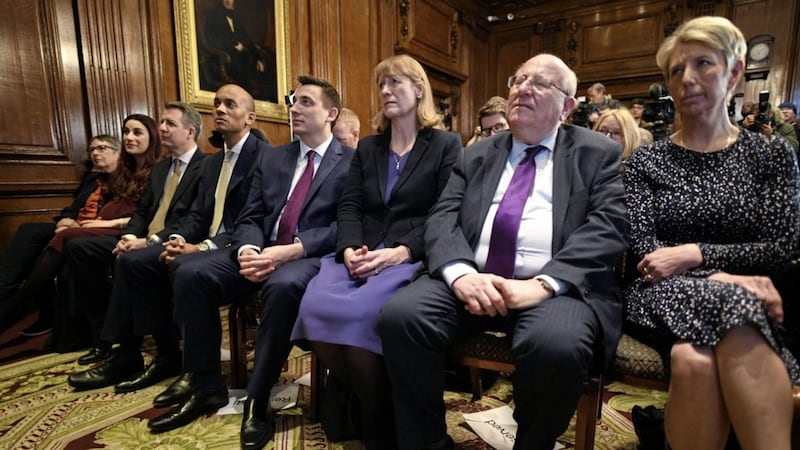It is almost 40 years since a group of former Labour MPs launched the Social Democratic Party.
They were very unhappy when, in January 1981, under new leader Michael Foot, the party committed itself to unilateral nuclear disarmament and to withdrawal from the EEC - just six years after a UK referendum had endorsed continuing membership by a very comfortable majority. The group also believed that Labour had become too left-wing and had been infiltrated at constituency level by Militant Tendency, whose views and behaviour they considered to be at odds with the views of the Parliamentary Labour Party and the majority of Labour voters. Sound familiar?
The founders of the new party were genuine political big hitters: Roy Jenkins, Shirley Williams, Bill Rodgers and David Owen (nicknamed the Gang of Four). They knew that just creating some independent group in the House of Commons was never going to be enough to change the direction of their former party. They also knew that Foot, although he wasn't firing on all cylinders as leader (and he was routinely bested by new Prime Minister Margaret Thatcher at Question Time), had the support of a huge swathe of grassroots membership. In other words, trying to wrest back control from within the party wasn't going to work; moreover, it would probably result in a civil war from which there would be few electoral winners.
The Labour and Conservative MPs who have left their parties this week should study the history of the SDP.
Their problem is that none of their 11 members (which may have increased by the time you read this) are what used to be known as Parliamentary 'big beasts.' Yes, they may have built up a profile thanks to Twitter and Facebook, but that's not the same as having the sort of clout and respect from the public that easily translates into votes. Their other problem is, that unlike the SDP, it is hard to identify what unites them other than the same broad (although not identical) view on Brexit.
The SDP had its roots in a document - the Limehouse Declaration - issued by the Gang of Four in January 1981, the opening paragraph of which stated that circumstances 'demand a new start in British politics.' The new Independent Group has no such 'manifesto' at hand and it's not even clear if they're talking about launching a fully-fledged party.
Time may not be on their side. As the parliamentary arithmetic becomes increasingly dodgy for Mrs May a general election could become unavoidable; indeed there could be one within a matter of months. Not one of the 11 MPs has a seat which could be considered 'safe' if they were to run as an independent against their former party. The odds on even one of them being re-elected are not high. Trying to put together a party, a machine and a clear message in a very short time may, in fact, be impossible.
In 1981 the UK was not divided on EU membership. Yes, there were still elements in both main parties who were in favour of leaving, but there was no public appetite. Thatcher had campaigned for remain in 1975 and was still of that view. And while Foot had shifted Labour to leave, his accompanying shift to a much more socialist agenda had made his party unacceptable to significant numbers of previously core votes. So there was a market for the sort of left-of-centre, pro-EU integration party that the Gang of Four was building.
But what sort of pitch would a new centrist party make today? It seems to me very unlikely that there is much of an appetite for a party that wants to follow Germany and France down the path of ever-increasing political/constitutional/economic/foreign policy/joint military etc integration. It also seems likely to me that such is the path that the EU wants to follow and would want us to follow if the UK stays. In other words, how do you square the circle?
While it may be true that a second referendum would deliver a victory for Remain (although it is by no means certain), it is also true that huge numbers of those Remainers are of the 'soft' variety, in that they probably don't want to pursue the hard choices involved with the sort of integration which the EU will continue to demand from the UK. So the problems of membership wouldn't just vanish.
When it comes down to it the people behind the Independent Group have been just as dithery as the Remain and Leave wings of the Conservative and Labour parties. They may know what they don't want; but don't entirely agree on what they do want. And that has been the core problem all along for everybody. Sadly, dangerously too, the UK Parliament has proved itself incapable of rising to this particular challenge. It's no wonder the EU negotiators (wonderfully blind, as it happens, to the mountain of problems the EU actually faces with or without the UK) runs rings around it so easily.








